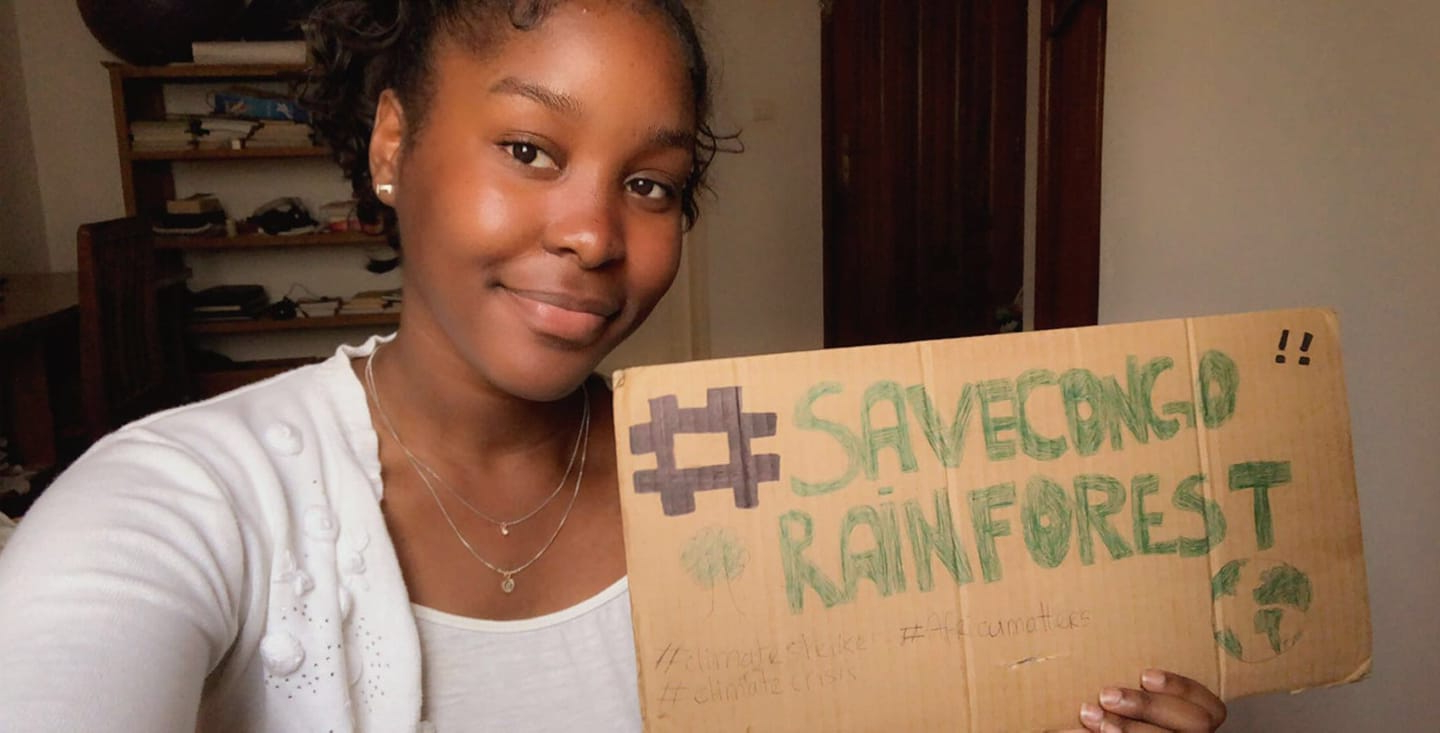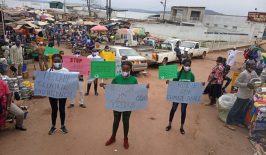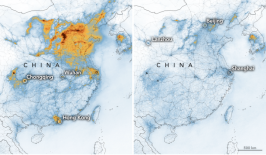What’s it like to be a Fridays for Future activist in a country where striking for the climate isn’t really “a thing”? In this interview we talk to 16-year-old climate activist Maureen Damen about her experiences as an environmental activist and diversity advocate, and the optimism she feels about people coming together to fight for a common goal.
Not only are people in the Global South often among the most vulnerable to rising global temperatures, but they are also climate activists, educators and changemakers – fighting for a better world, innovating and inspiring others to tackle the issues that we as a planet face. In this series of interviews with environmental activists from Latin America, Africa and Asia, we want to do our bit to decolonise the conversation around climate change and lift up the underrepresented voices within the climate movement. Find all of the interviews in this Voices of Climate Justice series right here.
Just like all of the other activists that we have talked to so far in this series of interviews, Maureen Damen lives in a country that is not a major contributor to global greenhouse gas emissions, while at the same time being deeply vulnerable to the affects of climate change. Nearly two thirds of Senegal’s population live near the coast, which is already being negatively impacted by rising sea levels. According to the UNDP, in the north of the country, changes in the climate over the past 25 years have made crop and livestock production more difficult, while desertification is spreading ever further into the country. Senegal is home to ambitious reforestation projects like the ‘great green wall’, but the Sahara Desert in the north has been edging southwards for decades, as trees are felled for firewood and droughts hit the edge of the whole of the Sahel region – which spans all the way from Senegal on the west coast of Africa to Eritrea on the east.
In Interview #5 in our Voices of Climate Justice series, we talk to Maureen Damen, the 16-year-old co-founder of Fridays For Future Senegal. She’s also founder of Rise Up Senegal, an international activist movement that seeks to amplify voices from Africa. We discuss what it’s like to take part in climate strikes in Senegal, the lessons she hopes the world has learned from the coronavirus crisis and the main issues that she wants to draw attention to with her personal protest – one of which isn’t in her own country at all, but instead on the same continent, nearly 5000km away.
How did you first learn about climate change?
Climate change was a subject I didn’t know much about. I used to hear about it vaguely at school but never with much detail. In August 2019, after the Amazon fires, was when I realised the real dangers of climate change and its consequences. In Senegal, climate change is already affecting agriculture and livestock farming, but also housing too. In some communities, people have already been forced to move away because the rising sea levels are destroying their houses.
Has Fridays for Future Senegal also been organising student strikes? If so, what was your motivation?
Striking for action on climate change is not something you see very much in Senegal, it’s not something people know about, it’s rare to talk about climate strikes or to see them happen. I have taken part in a few strikes, but only small numbers of people were involved each time. Unfortunately, it seems that climate change is not something most people see as a reason to go on strike about. But I won’t give up, I’m motivated to carry on because I’m optimistic about sustainable development and citizen engagement, I’m optimistic that things will change. That’s what motivates me each day to carry on working to raise awareness and to educate others about climate change.
You are the co-founder of Fridays for Future Senegal, but also the founder of another organisation, Rise Up Senegal. Could you tell us a bit more about that?
The Rise Up Movement, founded by Vanessa Nakate from Uganda, is an Africa-wide climate activist movement that raises awareness about climate change but also focuses on giving a voice to those who are not being heard, hence the name “Rise Up” (Ed: Vanessa Nakate was famously cropped out of an image of white climate activists back in January 2020, proving just how important that battle for diversity really is). It doesn’t really have a physical protest presence at the moment, but it’s carrying on – mostly online right now – with its mission to raise awareness about the destruction of the environment and make everyone’s voice heard.
What role has online media played in your own development as an activist?
In my opinion, digital and online media plays a very important role in the fight against the climate crisis. They have huge power – can bring knowledge to the general public, educate, raise awareness, share information on the climate movement and allow people to join the fight that’s going on. Personally, by creating my profile on social networks, I have been able to gain more understanding of climate change, but also more specific information about the African continent and the way its natural environment is being over-exploited. I’ve also been able to connect with other activists throughout the continent.
How has the coronavirus influenced your activism? Are you taking your protest online?
The coronavirus health crisis affected my protests in two ways: firstly, I no longer have the opportunity to interact with audiences in public and I’ve had to focus on social networks instead. I am forced to take my protests online, regularly posting a picture of myself with a poster. That means that I have no way of influencing people who have no access to those kind of services. Secondly, I’m no longer able to meet with partners or public authorities, which really reduces the power that I have and undermines my mission.
Is there anything you hope we can learn from this unique situation?
The coronavirus crisis has taught us that we can act in a crisis (something that had never been shown before with the climate crisis), that the world is ready to listen to scientists and experts, and even that our leaders know how to act quickly and find solutions in a crisis. Our planet has finally been able to breathe more freely recently, meaning we must conclude that cutting back on our day to day consumption and shifting to a more sustainable way of life is one approach to solving environmental problems. That’s something positive that I take from this, and I hope the rest of the world shares my view.
Very few countries seem prepared to make those kind of drastic changes in the long term. Why do you think that is?
Yes, unfortunately, there has been very little action taken by people in power. Environmental protection does not go hand in hand with capitalism. The transition from a “normal” economy to a green economy will cost a lot. And I also think that many countries cannot afford the cost of doing that. I think that’s why there’s so little action in the face of our protests – but it still doesn’t justify those countries continuing to support polluting industries and environmentally-destructive companies
What are the key issues that you are highlighting in your particular protests?
The specific key issues are: forests, Africa, wildlife, pollution. My poster says “Sauver la forêt tropicale du Congo” (“Save the Congo Rainforest”) (Ed: While deforestation in the Amazon gets a lot of press, the levels of deforestation in the Congo Basin – home to the world’s second-largest rainforest are equally dramatic – and are on the rise. Satellite data indicates that the Congo Basin lost an area of forest larger than Bangladesh between 2000 and 2014, and a study from the University of Maryland suggests that at the current rate of tree cover loss, the DRC’s primary forests could be gone completely by 2100). I want every person who passes me on the road or sees me on social media to know that there is a forest in Congo that is in danger of disappearing if we do not act quickly. I put that sentence on my poster for the whole world to see.
Is there anything else you’d like to let our readers know?
“Unite behind the science.” It is important to follow and understand what experts and climatologists are doing. As well as adopting green habits in our daily lives and attitudes, we need to unite behind the science. The climate movement isn’t about individuals, it’s about unity, it’s about bringing together people who share the same goal: the survival of the planet.
You can follow Fridays for Future Senegal and Rise up Senegal on Twitter and find Maureen’s personal Twitter account right here. Fridays for Future Senegal also has a Facebook page where you can keep up to date with their news and events, including climate strikes, blog posts and webinars.
Co-authored by Marisa Pettit and Jan Wisniewski






